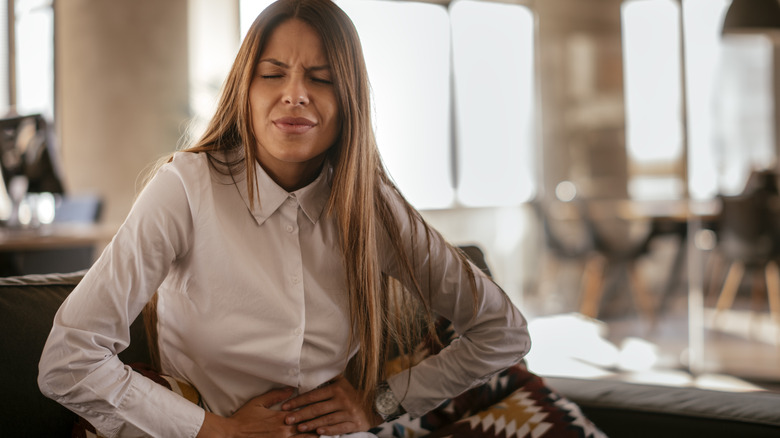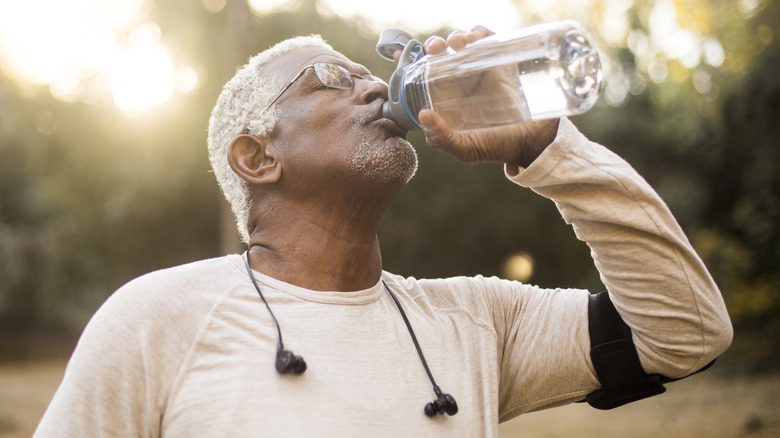What Happens To Your Poop When You Stop Drinking Coffee
For many of us, a piping hot cup of coffee is our morning elixir. The day hasn't really started until we feel that caffeine pumping through our veins. But if one too many cappuccinos bring about anxiety, headaches, or irritability, these may be signs to consider dialing back your espresso intake.
You've probably noticed that not too long after ingesting coffee, your bowels send you running straight for the bathroom. The reason coffee makes us poop is because it gets traffic moving within our gastrointestinal tract by activating muscle contractions in our colon (per Cleveland Clinic). In fact, a reported 29% of coffee lovers feel the urge to go number two following a cup of joe, sometimes within mere minutes. Mind you, decaf coffee drinkers are not immune to this effect, either.
While healthy poops are either long and brown or sausage-shaped with minor cracks, the coffee-induced stool is usually loose (per WebMD). Knowing this, here's how you can expect your bowel movements to change should you decide to up and quit your caffeine habit.
You may feel constipated from caffeine withdrawal
If the timing of your morning bowel movement is generally in pretty close alignment with the timing of your morning coffee, you might start to feel a little less regular after going cold turkey. "If someone is really relying on their cup of coffee for a bowel movement, they might notice that they don't use the bathroom as quickly in the morning [after quitting]," Rachel O'Connor, an oncology dietician at NewYork-Presbyterian, told Self.
Instead, you may find that you're dealing with some newfound constipation. This is just one of many symptoms associated with what's known as caffeine withdrawal. According to an updated 2023 article published in StatPearls, symptoms typically emerge within 12 to 24 hours after you stop drinking coffee and are at their worst approximately 20 to 51 hours after quitting. Symptoms may linger for anywhere between two and nine days and may additionally include increased heart rate, blood pressure changes, hand tremors, skin flushing, nausea, joint pain, and more.
How to get your poop moving after quitting coffee
Up to nine days is an awfully long time to be feeling backed up. Thankfully, there are ways in which you can ease the stress on our bowels as you transition from coffee fiend to coffee-free. For starters, be sure to keep up with your water intake. Recommendations for daily fluid intake are 15.5 cups for men and 11.5 cups for women (per Mayo Clinic). The more of this that comes from water rather than from juice or soda, the better. What's more, try drinking hot water, which can further help ease constipation by relaxing your smooth muscles (via Self). Prioritizing fiber in your diet is another way to alleviate constipation from a lack of coffee. Leafy greens, bananas, and oatmeal are just a few of the many fibrous foods that can lend a helping hand in this department.
While we commend you for your discipline, abruptly eliminating coffee from your diet can be a shock to the system. Therefore, consider progressively lowering your intake rather than doing away with coffee all at once. The U.S. Food & Drug Administration (FDA) advises a maximum daily caffeine intake of no more than 400 milligrams, meaning you'll want to cut yourself off after approximately four or five cups.



